Did you know that more than 2.2 billion people worldwide live with vision impairment or blindness, according to the World Health Organization? Even more surprising, at least 1 billion cases could have been prevented or are still treatable. In our modern lifestyle, with endless screen time and processed foods, our eyes often take the hit before we even notice. Eye strain, blurry vision, and difficulty seeing at night are becoming increasingly common—even in younger generations.
So, what if part of the solution lies right on your plate? While glasses, regular eye checkups, and medical care are essential, nutrition plays a critical yet underrated role in preserving your eyesight. Certain foods are packed with vitamins, minerals, and antioxidants that support your eyes’ ability to focus, filter light, and protect themselves from damage.
In this article, we’ll explore six powerful foods that can help improve vision naturally. Backed by research and practical tips, you’ll learn not only why these foods matter but also how to easily add them into your everyday meals. By the end, you’ll have a clear, actionable roadmap to nourish your eyes for years to come.
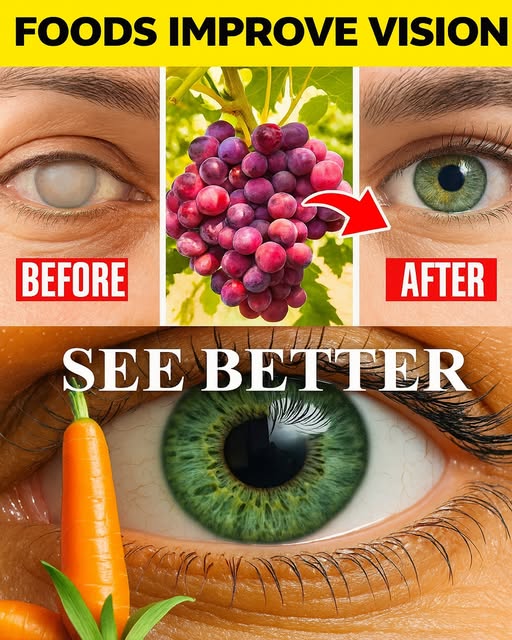
Why Nutrition Matters for Eye Health
Your eyes are highly metabolically active organs. They need a constant supply of nutrients to function optimally. Deficiencies in key vitamins and minerals can contribute to conditions such as macular degeneration, cataracts, glaucoma, and even dry eye syndrome.
Nutrients most often linked with eye health include:
- Vitamin A: Essential for low-light and color vision.
- Vitamin C: A strong antioxidant protecting against oxidative stress.
- Vitamin E: Supports cell membranes in the eyes.
- Zinc: Helps vitamin A create melanin, the protective pigment.
- Omega-3 fatty acids: Important for retina development and dry eye prevention.
- Carotenoids like lutein and zeaxanthin: Found in the retina, filter harmful blue light, and may lower risk of macular degeneration.
Now let’s break down the six foods that naturally deliver these nutrients in abundance.
1. Carrots: The Classic Vision Booster
Carrots are probably the most famous “eye food,” and for good reason. They are rich in beta-carotene, a precursor to vitamin A. Vitamin A deficiency is one of the leading causes of preventable blindness in children worldwide.
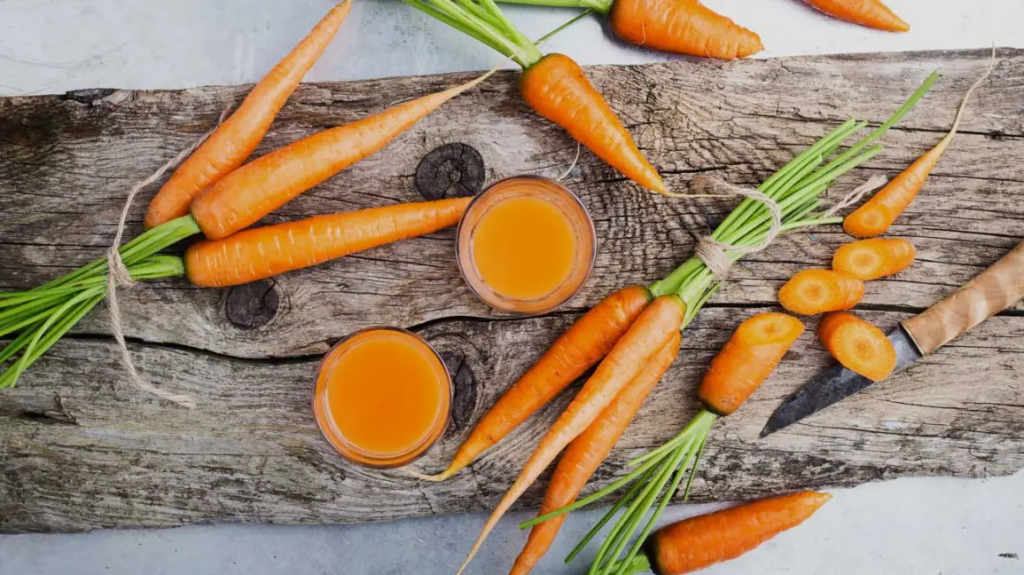
How they help:
- Improve night vision.
- Support the health of the cornea.
- Help reduce the risk of cataracts.
How to enjoy them:
- Snack on raw baby carrots with hummus.
- Add shredded carrots into salads and wraps.
- Make carrot soup or roast them with olive oil and herbs.
2. Spinach: A Leafy Green Packed with Antioxidants
Spinach is a powerhouse of lutein and zeaxanthin, carotenoids that act like natural sunglasses by filtering harmful blue light. They also protect against age-related macular degeneration (AMD), a leading cause of blindness among older adults.
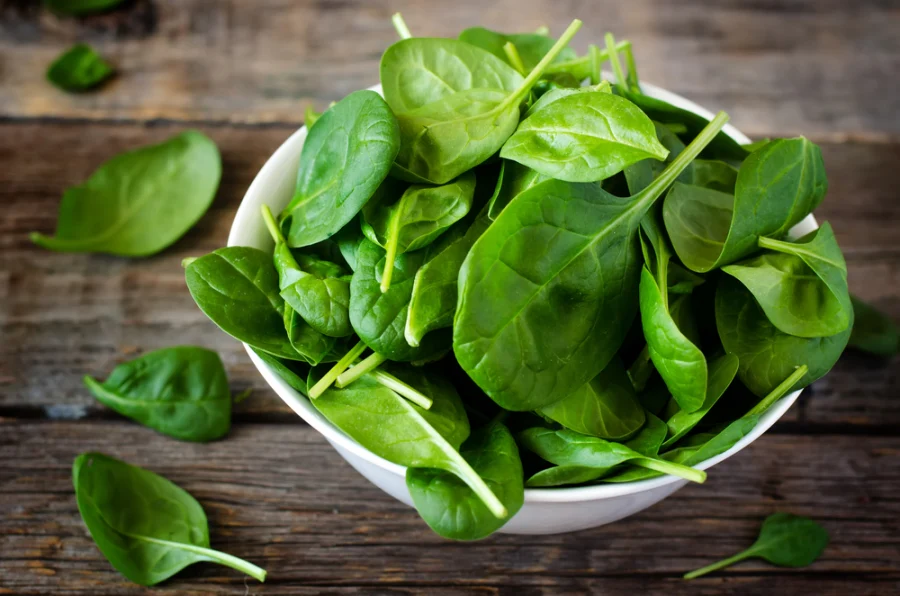
How it supports vision:
- Neutralizes free radicals that damage the retina.
- Helps maintain visual clarity and long-term eye health.
Ways to add spinach:
- Blend fresh spinach into smoothies.
- Sauté with garlic as a side dish.
- Layer into sandwiches or omelets.
3. Salmon: Rich in Omega-3 Fatty Acids
Your retina requires omega-3 fatty acids to function properly. Low levels have been linked to dry eyes and macular degeneration. Salmon is one of the richest natural sources of EPA and DHA, the two most important omega-3s.
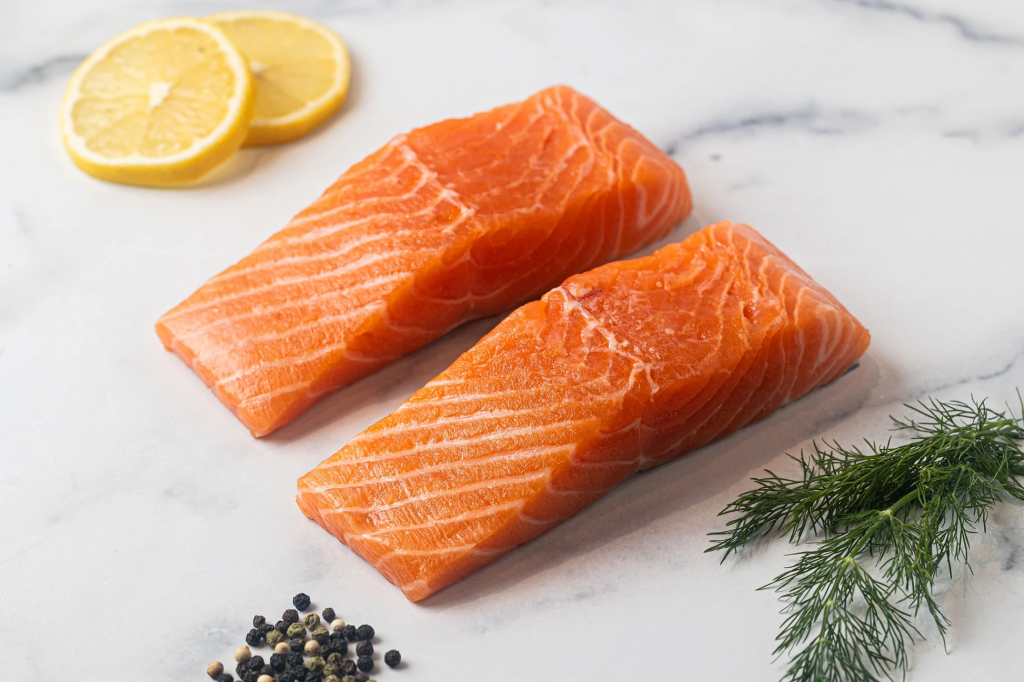
Benefits for your eyes:
- Reduces risk of dry eye syndrome.
- Supports healthy blood vessels in the eyes.
- May slow progression of AMD.
Easy ideas:
- Grill or bake salmon with lemon and dill.
- Prepare salmon sushi rolls or poke bowls.
- Use canned salmon in salads or sandwiches.
4. Eggs: A Simple, Affordable Superfood
Eggs are loaded with lutein and zeaxanthin, especially in the yolk. They also provide zinc, which helps vitamin A reach the retina and produce melanin.
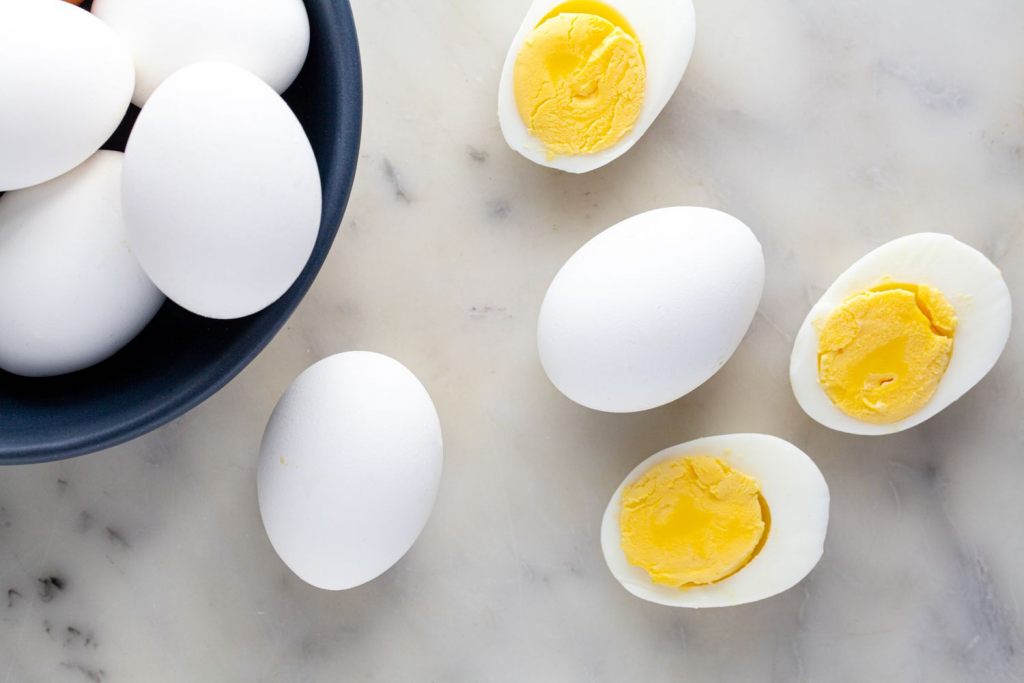
Why they’re essential:
- Provide a bioavailable source of carotenoids.
- Contribute to protection against UV damage.
- Support overall visual function.
Meal ideas:
- Enjoy scrambled eggs with spinach for a vision-boosting combo.
- Make hard-boiled eggs for a quick snack.
- Add eggs to grain bowls or salads.
5. Citrus Fruits: A Burst of Vitamin C
Oranges, grapefruits, lemons, and limes are brimming with vitamin C. This antioxidant is vital for maintaining the health of blood vessels in the eyes and may help prevent cataracts.
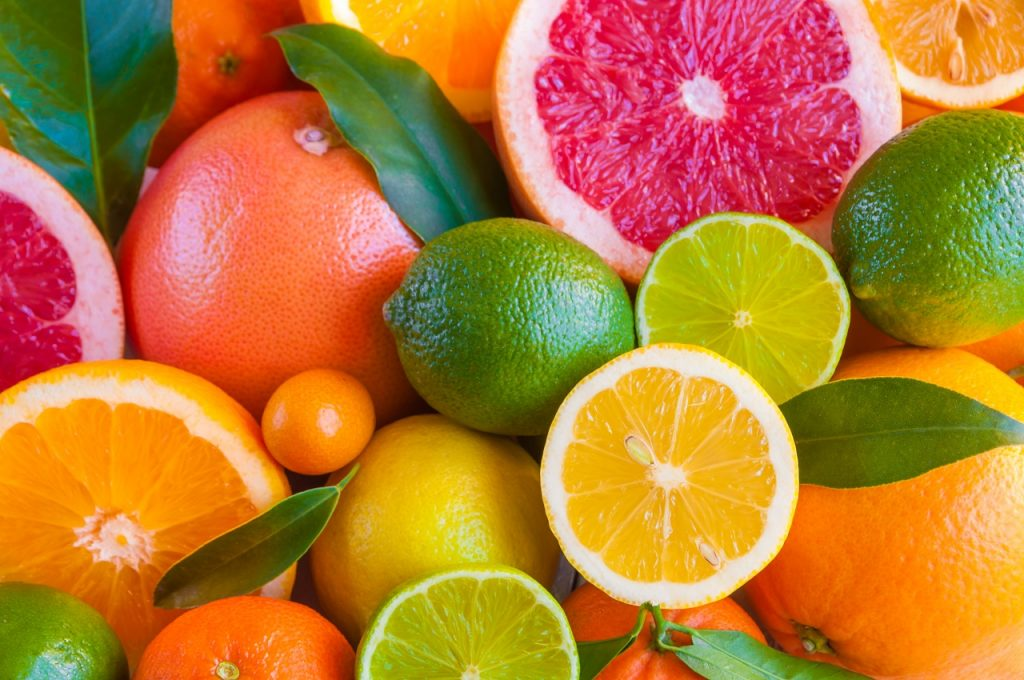
Benefits include:
- Protects eye tissues from oxidative stress.
- Supports collagen production for corneal strength.
- Works synergistically with vitamin E and zinc for maximum benefit.
Daily use:
- Drink fresh-squeezed orange juice in the morning.
- Toss grapefruit segments into a salad.
- Use lemon juice as a natural seasoning for meals.
6. Almonds: A Crunchy Source of Vitamin E
Vitamin E is another antioxidant that defends your eyes against free radicals. Studies suggest it may slow the progression of age-related eye conditions. Almonds are an excellent, easy-to-carry source of vitamin E.
Why they matter:
- Protect photoreceptor cells in the retina.
- Reduce risk of macular degeneration.
- Provide healthy fats for nutrient absorption.
Snack and meal tips:
- Keep a small handful of almonds as a daily snack.
- Add chopped almonds to yogurt or oatmeal.
- Blend into smoothies for a creamy texture.
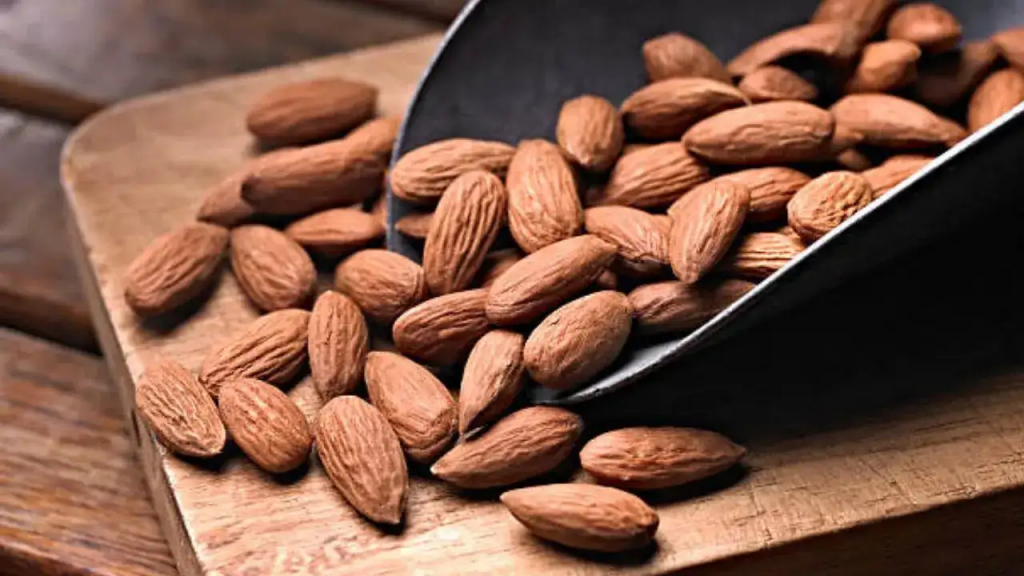
Comparison Table of the Top 6 Foods
| Food | Key Nutrients | Eye Health Benefits | Easy Ways to Eat |
|---|---|---|---|
| Carrots | Beta-carotene, Vitamin A | Better night vision, cornea health | Raw, roasted, soups |
| Spinach | Lutein, Zeaxanthin | Filters blue light, prevents AMD | Smoothies, sautéed |
| Salmon | Omega-3 (EPA, DHA) | Dry eye relief, retina support | Grilled, sushi, canned |
| Eggs | Lutein, Zeaxanthin, Zinc | UV protection, melanin production | Scrambled, boiled |
| Citrus Fruits | Vitamin C | Collagen support, cataract prevention | Juices, salads |
| Almonds | Vitamin E, healthy fats | Retinal protection, AMD prevention | Snacks, oatmeal |
Practical Tips for Eye-Friendly Eating
- Variety is key: Rotate these foods weekly for a balanced nutrient intake.
- Pair nutrients: Combine vitamin C-rich citrus with iron-rich spinach for better absorption.
- Mind your lifestyle: Quit smoking, manage screen time, and wear sunglasses for added protection.
- Stay hydrated: Water supports tear production and prevents dry eyes.
Conclusion
Your vision is one of your most valuable assets, and protecting it doesn’t have to be complicated. By regularly incorporating foods like carrots, spinach, salmon, eggs, citrus fruits, and almonds into your meals, you provide your eyes with the nutrients they need to stay strong and resilient.
Key points to remember:
- Nutrient-dense foods support long-term eye health.
- Small, consistent dietary changes make a big difference.
- Combine good nutrition with regular eye exams for the best protection.
This content is for informational purposes only and should not replace professional medical advice. Always consult an eye care specialist if you have concerns about your vision or eye health.




